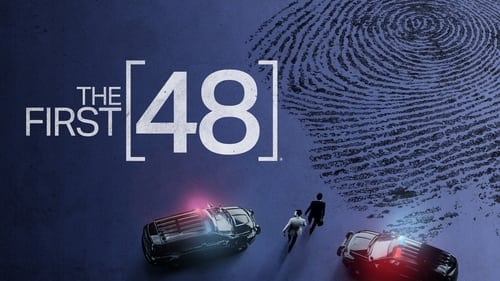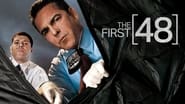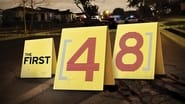Elaineratrat
I watch The First 48 every day (old and new episodes). I have been addicted to this show from the very beginning. I'm surprised to learn that the popularity is declining. This is surprising given that the Tulsa crew (added more recently) is so awesome! They work together and seem to solve most of their cases. Of all the cities added in recent years, Tulsa has been the one to watch. I'm not taking anything away from Charlotte, Atlanta, Rochester or any of the others, but that Tulsa crew is dynamic!! I will always be a First 48 fan (13 years and I'm still hooked). The First 48 is my #1 show!!!
celr
This is just about my all-time favorite TV show. It follows real homicide detectives as they work to solve actual cases. You get to ride along with them and see how they put together the clues and catch their suspects. You get to see the devastating effects these homicides have on the families of the victims. You can see how the detectives interview actual suspects and how they handle the strain this rather grim and arduous work which often pulls them out of bed in the middle of the night to go to some miserable crime scene to examine a dead guy who was alive only an hour or so before. These detectives are admirable, heroic, stoic and dedicated to do the work they do and they're not without a sense of humor. This sense of humor isn't the breezy, wisecracking sort you get on the fictional cop shows, but a genuine dark humor which comes from an all-too-real appreciation of the tragic nature of their work and the absurdities of the situations they have to deal with. For example, a suspect is being interrogated by a female officer. The suspect is saying how he was friends with the victim and would never hurt him. However, it's looking more and more obvious he did it. "I knew him since grammar school, he's like a brother to me," the suspect pleads, "I love him to death." The detective replies: "I hope nobody ever loves me that much."The vast majority of these murders occur in minority neighborhoods. This is a fact of life that many people have a hard time getting their heads around. Why this is may be a complex question. There seems to be a feeling of resignation among the residents of these 'hoods. They are very often reluctant to give information to the police even though they are the ones suffering most from the crimes around them, and though cooperating with the cops would be the surest way to mitigate the crime problem which is making their lives a living hell. You can observe several salient things watching "The First 48." First, the housing in these high crime neighborhoods isn't really so bad. Second, people appear to be well-fed and possess TVs, cellphone, iPods and all kinds of consumer items including pretty good cars and nice clothes. You are far more likely to see obese people than starving people. The third thing that impresses is the absolutely deadpan, casual, mindless and cold-blooded way these killers usually commit their murders. Most of them appear to be sleepwalking. They kill on impulse, not from passion or even for some economic gain. They kill innocent bystanders as easily as they kill intended targets. They hardly appear to know how to aim their guns. It seems you have generations of young thugs who appear to be just too dumb to think of anything else to do than to go out and shoot their friends and neighbors for...well, it doesn't even seem like sport, it's more like just something to relive the boredom. I don't know the reason for this, but it is the most absolutely remarkable thing you come to know from watching this series or just reading the stories in the newspapers. It is profoundly shocking to realize that a large cohort of young men, often in their late teens and early 20s have such little regard for human life, and little regard for anything else either. Often the young killers appear stunned, zombielike, when they find themselves in police custody, like they have no idea why they're there and wondering when they can go home. This show is beautifully produced, visually and structurally, with a very real sense of compassion for the families and friends of the victims. Though the killers seem to be emotionally detached, the families of the victims feel the loss of a loved one very deeply indeed. "The First 48" touches on so many subjects, sociology, criminology, old-fashioned detective work, spirituality, psychology and forensics. It is just about the best 'reality' show on TV today.
Lechuguilla
One of the more credible "reality TV" series, "The First 48" (which refers to the first 48 hours of a crime investigation) shows real detectives investigating real crimes. All POIs are real. There are no actors, no script.Each episode lasts about 45 minutes, and begins as the crime investigation begins. The episode then ends with the identity of the perpetrator. In between, cops query neighbors, talk strategy among themselves, search databases, make phone calls, and analyze forensics. It's gritty work. Most of the time, cases are solved, but not always. Usually, the criminal leaves obvious clues, as he or she is not very smart.Color cinematography is fine. Images are clear and sharp. Given the docudrama approach, editing is important. All the episodes I watched had fine editing. In voice-over, a narrator describes what's going on and why, to help guide viewers.My only complaint is that some episodes are sewn together in one long sequence. You get the setup for "Loved To Death" (for example), only to be interrupted by the setup for "Unmasked" (a different episode). Then during "Unmasked", the program switches back to "Loved To Death". This back-and-forth presentation of two episodes is annoying. It kills each story's continuity.I'm not fond of the "reality-TV" genre. But here, the action is not contrived. And there are no Hollywood "stars", mercifully! Overall, "The First 48" is a fine series that at least tries to introduce some reality into a film genre that historically has been way too glamorized.
ccthemovieman-1
I've seen maybe a dozen of these episodes and I'm impressed. All of them are interesting but be warned many of them are not uplifting. I find I can only watch them sporadically because often it's a downer.....but that's real. Nothing is glamorized here; you see what it's like to be a homicide detective in some of the toughest parts of big cities.Some of the cities that are prevalent in these stories include Memphis, Dallas, Miami and Detroit. I've also seen Kansas City, Cincinnati and a few other places. no matter the city, the stories are fairly similar - somebody committed murder, a few suspects try to lie their way out of it, some finally admit it, but some cases remain unsolved. There are not always satisfying endings because some cases simply are too tough to solve or police don't have enough evidence to convict the apparent killer.We also learn that being a homicide cop requires a number of things most of us don't have, and you better be really dedicated to the job or you won't last long. My hat's off to these people, who are trying to see justice served. If you want to get a taste of of what it's like being a cop in mostly black or Hispanic neighborhoods, this is your show. Many of the police or black or Hispanic, themselves. All of them are interesting. For those who will never come close to living in neighborhoods shown in this series, it will open your eyes to a violent world..Note: since I can't find this particular episode listed here on IMDb, I've tacked in on to the general review of the TV program. This episode was titled "The Wrong Man/Five Points Payback." 'Another Sad Story'That is how Sgt. Tony Mullins, lead detective, sums up "The Wrong Man" case in which an innocent man is shot to death. He wasn't the target, but the killer missed and hit him instead. Mullins and his peers see a lot of this kind of thing: "another sad story" as people's lives are snuffed out routinely, many times over trivial instances.This shooting took place at a busy intersection in Memphis, Tenn., and the police have a hard time in the beginning collecting evidence. That's because it's raining out and getting worse. A lot of evidence is being washed away so time is especially critical. Witnesses say a gray Chevy Caprice was seen driving away after the shooting.Once the cops find the car, a lot more progress is made and eventually the case becomes a manhunt for two brothers: Johnny "Main" Peterson and Sammy "Pookie" Peterson. It takes over three weeks for them to be found, the key help in the case being their sister, "Diamond."The second case in this episode is in Dallas, Texas, where police get a 911 call about a shooting in a parking lot of an apartment complex. Two men are found shot: one is dead and the other rushed to the hospital. Soon, it's related that the latter will be paralyzed for the rest of his life. Who shot them and why? Det. Dale Lundberg and his crew investigate. The dead man is Sabas Vargas, a Mexican national and father of two. The case, in a nutshell, winds up being about drug running up to Nashville, Tenn. Bad blood between a couple of guys over a girlfriend - not drugs - is, allegedly, the reason for the bloodshed.A key tip in this case comes from another cop working the Narcotics Division who hears about the Vargas shooting, sees the Tennessee plate son the van in which the men were shot, and puts two-and-two together.Here's the bad news. As of the end of the show, the killers were still on the loose. This case hadn't been solved.








